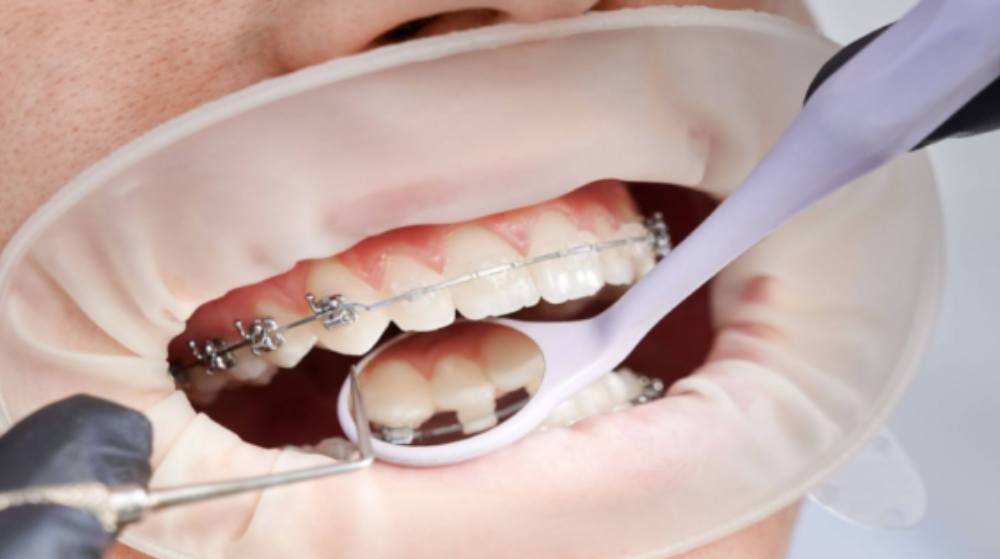Every time you visit a dentist you will always be asked if you brush twice a day and floss your teeth at least once daily. You will always be advised to start flossing if you are not doing so already and the benefits of flossing will be stated out loud so you are motivated to start flossing your teeth. The question is Why?
Flossing regularly is very important for oral hygiene maintenance. It prevents buildup of plaque and tartar between teeth and gums and in turn decreases the risk of tooth decay and gum disease. Since your toothbrush cannot reach in between teeth, you miss out on 33% of the total teeth surface and hence interdental cleaners like floss are an important part of your oral hygiene maintenance.
Benefits of Flossing
1. Prevents plaque buildup
Pluck is a sticky phone that accumulates around and in between your teeth and gums in which bacteria grows and multiplies. Although you cannot see it, if not cleaned over time this gets hardened into tartar or calculus which increases the risk of gum disease. The bacteria present in the implant releases acids that are adapted to the enamel. And if these acids are not removed with brushing and flossing it will over a period of time lead to cavities. Spider regular flossing can help remove food particles especially fibrous food between your teeth as well as the plaque buildup.
2. Reduces the risk of tooth decay
Tooth decay happens when the bacteria in your plaque releases acids on coming in contact with the food, in your oral cavity and this acid attacks tooth enamel and causes decay in the surrounding teeth. Although this process takes time, the more plaque you have on the enamel the higher the risk of developing a cavity. Flossing at least once a day breaks up the plaque buildup and any food particles stuck between teeth and greatly reduces your risk of tooth decay.
3. Prevent gum disease
The early stage of gum disease is called gingivitis which involves inflammation around your gums inflammation in your gums. Bleeding gums on brushing and flossing is a sign of gingivitis. If left untreated, gingivitis can progress into a severe condition called periodontal periodontitis in which there is redness and in chronic conditions may also cause teeth mobility due to loosening of gums. If not treated it may cause an inflammatory response throughout the body. Brushing and flossing your teeth twice a day reduces your risk of gum disease. Getting professional cleaning done every six months also plays a major role in keeping your gums healthy
4. Reduces bad breath
Bad breath is a common problem these days especially since our diets are more of soft sticky foods done fibrous raw foods. When the sticky foods are eaten they get trapped between your teeth or stick to your teeth and slowly start to DK if these are not removed it results in foul-smelling bread. Also, if brushing and flossing or not done regularly for, plaque builds up around and in between your teeth and starts rolling the enamel on your teeth causing cavities which also contribute to halitosis or bad breath
5. May benefit your heart health
Studies have shown that good oral hygiene may benefit your heart health too. American Heart Association states that a connection between oral health and heart health maybe due to the link between the health of your oral cavity and the overall health of your body. Irrespective, flossing your teeth is a simple, low-cost way to improve oral hygiene as well as your overall health.
How Often & When Should you Floss
The American dental Association (ADA) recommend brushing your teeth twice a day for two minutes and flossing at least once a day. According to their convenience and preference some people lost during their morning routine while others like to floss before going to bed. It’s generally recommended that You floss your teeth before brushing them. When you floss, you loosen the food particles and pluck around duty and the brushing action then helps remove all the debris is from your teeth and gums.
Types Of Floss
Dental floss generally comes in two varieties
While both are equally effective, choosing between the two is usually a personal preference.
In people who have crowded teeth a waxed floss is easier to use as they have tight contacts. Also, if you have braces, bridges, crowns you may want to buy a dental floss threader with a stiff end.
The Takeaway
Flossing your teeth is a vital part of your oral hygiene maintenance. Not only does it remove food and debris between your teeth but also has several other benefits. By removing food particles and preventing plaque from building up, it prevents gum disease and tooth decay.
Flossing removes food particles stuck between your teeth and prevents bad breath and studies show that it may also reduce risk of heart disease.
So, brush your teeth twice daily and floss at least once before brushing your teeth
Visit Smilex International dental Centre for dental implants in Pune




